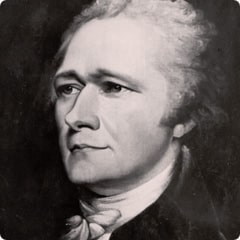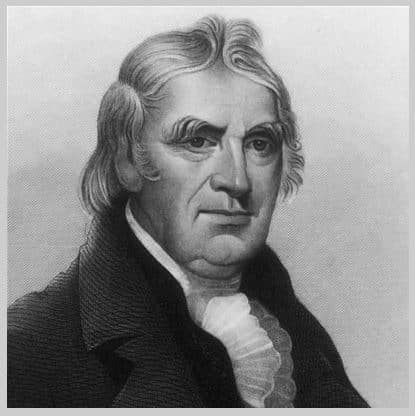Free People as Citizens

The Philadelphia Convention concluded its business on 17, September 1787. Ten days later, on 27, September, there appeared the first of seven letters written to the citizens of New York under the pseudonym “Cato.” The letters are intended to help New Yorkers think about the strengths and weaknesses of the proposed new constitution.[i] It isn’t known with certainty who Cato was, but it seems that a plurality of historians think it was New York Governor George Clinton. Marcus Porcius Cato, Cato the Younger, was a Roman senator in the period of the late republic who lived from 95 B.C. to 46 B.C. He was famous for resisting the efforts of Julius Caesar to expand the power of government, but importantly, was held in high regard for his refusal to take bribes, his unassailable moral character, and his opposition to the corruption of his time. The American Cato took this name knowing that the people of New York to whom he wrote would understand that he was making a statement on the virtues required of free people, and the form of government best suited to protecting their natural rights.
The Philadelphia Convention was not convened in order to write a new constitution; the country had a constitution called the Articles of Confederation and Perpetual Union. But many prominent people in the United States did not like the Articles because they established what they saw as a weak confederal government with few powers and so the confederation was ill equipped to perform the important functions of military defense and facilitation of commerce among the states.

These people were nationalists and their faction was large, including George Washington, James Madison, Alexander Hamilton, Benjamin Franklin, John Dickinson, and James Wilson. They began misleadingly to call themselves “federal men,” and later formed a movement and then a party called the Federalists. They wanted a centralized national government with states reduced to administrative agents of the central government. Alexander Hamilton, for example, wanted to create a president for life and a senate whose members were elected for life. The president would appoint the governors of the states and would hold a veto power over state legislation, and although this ambition was soundly rejected, the purposes of the nationalists had been announced. The strategy the nationalists pursued was to hold a convention at which a new constitution would be drafted for a new form of government that was sufficiently decentralized to be acceptable to the people of the sovereign states. This new government, however, was to be structured in such a way that the new general government could grow over time into the centralized national government they had in mind. The anti-federalists, who were in fact federalists, also were unhappy with the Articles of Confederation but their concern was that it established a general government with too much power, and so if there were improvements to be made, they should include additional checks on the tendency of federal power to grow. There was broad, though not uniform, agreement that whatever kind of general government there was should be weak relative to the states, with little capacity to grow its power, for this would threaten the sovereignty of the states and the liberty of the people of the states. Americans in the 18th century fought a war with the British Empire in order to escape the abuses of freedom that come from centralized power, and most were opposed to creating that kind of government here under American control since the inevitable outcome, the loss of liberty, would be the same.[ii] Therefore, the argument goes, the general government established by the states must be under the control of the states that created it. So the delegates of the states who were sent to Philadelphia in the summer of 1787 went there with the charge to prepare recommendations for improving the Articles of Confederation for the states to consider. They had no instructions from their legislatures to scrap the Articles and write a new constitution with a frame of government different from the one under which their deliberations were authorized.

Cato’s first letter does not engage the content of the constitution, but is rather an encouragement to New Yorkers to take seriously the work of deliberating on the proposed constitution and to deciding whether to accept it, reject it, or propose alterations to it. Interestingly, Alexander Hamilton of New York, writing under the pseudonym “Caesar,” replied to Cato’s letter saying that alterations should not be tolerated, but rather New Yorkers should reject the document “IN TOTO, or vice versa; just take it as it is and be thankful.” It is unfortunate that Hamilton let slip an opportunity for genuine debate as an act of citizenship over a question of great public moment, but as it happened, his letters, there are two of them, are of little value in this regard since they are primarily invective and thinly veiled threat with little in the way of argument and analysis.
This would not be Hamilton’s only attempt to blunt the force of Cato’s letters and those of other important anti-federalists, and in fact, we find throughout the Federalist essays written specifically to rebut their writings. In his fourth letter, Cato delivers a compelling analysis of the proposed presidency as described in Article II of the constitution, warning New Yorkers that “if the president is possessed of ambition, he has power and time sufficient to ruin his country.” The concern expressed here is that the greater the power of an office, the shorter should be the term in office. The American president under the new constitution will have both too much power, and too much time, four years, to exercise it. Federalists responded to Cato seeking to deflect his criticisms, and Cato replies to their arguments in his fifth letter. In response to these letters, Alexander Hamilton wrote what is now Federalist 67 in which he denounces Cato’s letters, attacking his arguments in some detail, specifically citing letter five. Hamilton insists that Article II was the most carefully crafted of all the parts of the new constitution, and laments that no other part of the constitution “has been inveighed against with less candor or criticized with less judgment.” [iii] Cato’s first letter, however, is a prudent admonition to New Yorkers to beware of the proposed constitution, and contains within in it much that is useful to Americans today who are concerned with recovering the spirit of citizenship in a self-governing republic.
Cato opens his first letter observing that while the people of New York had not yet formally received the proposed constitution from their government, yet “through divers channels” it had come to them. Cato observes that those New Yorkers who had actually seen the document alternated among joy, hope, and fear “as it conformed to, or differed from, your various ideas of just government.” Cato asserts that to an American, government is the science of his political safety and that of his posterity, and for this reason, they will deliberate carefully about a decision which, if gotten wrong, could bring ruin upon the community. The deliberation we bring to the proposed new form of government, Cato instructs, exceeds in gravity the prudence one brings to his business affairs because “if you are negligent or inattentive, the ambitious and despotic will entrap you in their toils, and bind you with the cord of power from which you, and your posterity, may never be freed; and if the possibility should exist, it carries along with it consequences that will make your community totter to its center:…”
Cato goes on eloquently to describe the choice lying before New Yorkers, and the consequences of decisions taken without sufficient, critical reflection. Doing right in this life blunts the sharpness of death, Cato says, and an important part of doing right is to leave to your children a fair political inheritance, “untouched by the vultures of power, which you had acquired by an unshaken perseverance in the cause of liberty….” We must be vigilant for our posterity, for their good, surely, but also because the political order we leave to them will go far to determine how they will regard us. So, Cato offers advice for how New Yorkers should proceed in the face of the machinations of those who seemingly will stop at nothing to have their way.
Beware of those who wish to influence your passions, and to make you dupes to their resentments and little interests—personal invectives can never persuade, but they always fix prejudices which candor might have removed—those who deal in them have not your happiness at heart. Attach yourselves to measures, not to men.
People intent on controlling others have long used among their stratagems tales of enormities real or imagined intended to incite envy, fear, and anger in order to cause division and conflict. People agitated in this way will often attach their loyalty to demagogues promising protection, or relief, or revenge cloaked as “justice.” In order to avoid this, Cato urges New Yorkers to attach themselves to measures rather than to men. The assumption lying behind Cato’s advice here is that the work of self-government is the work of a community, and when we divide ourselves into parties, factions, we divide the community into competing centers of often irreconcilable interests. This is a difficult problem that is grounded in human nature, and it long concerned James Madison, and Thomas Jefferson who wrote to a friend saying if belonging to a party was a condition of entering heaven, he’d rather not go. It may be that to avoid the spirit of faction, or to reduce its unhappy effects, we should as a society take seriously the importance of virtue in the life of a well-developed person, and thus of a well-developed society. This problem is not well appreciated in our time and while it was better understood in the past, Americans in general have never grasped the importance of personal virtue in the maintenance of good government.
In The Basic Symbols of the American Political Tradition Willmoore Kendall and George Carey discuss this issue writing:
What is to keep the virtuous people virtuous? The question is as old as Greek philosophy, and Greek philosophy offered, on one level at least, the decisive answer: The people will be virtuous only to the extent that the souls of its individual components are rightly ordered, and the right ordering of souls is the business of education.
This is an understanding of education that is not widely shared among Americans today, and it is worth considering the extent to which this situation contributes to our present cultural difficulties. Education is to a society what memory is to an individual, and so much harm is done to a society whose members lack virtue sufficient to the task of faithfully communicating knowledge of our past to the generations of our future. Kendall and Carey clarify this point saying:
…education appropriate to the maintenance of the virtue of the people cries up at us as a further problem that wants critical clarification. One might, indeed, argue that the failure to meet this problem head on has been perhaps the greatest failure of the American political experience, and we are entitled to be surprised when we find that Publius [the Federalist] seems to be unaware of education as a problem for the new republic.
While Cato doesn’t discuss the content of the constitution in this first letter, he does mention two concerns about it that had alarmed New Yorkers: the maintenance of a standing army, and the establishment of a small group of powerful men (Congress and the president) in control of it. But Cato doesn’t warn his readers not to accept these features of the constitution, but admonishes them to think about them carefully, with criticism and candor. Cato finishes his address to New Yorkers writing:
This form of government is handed to you by the recommendations of a man who merits the confidence of the public [George Washington]; but you ought to recollect, that the wisest and best of men may err, and their errors, if adopted, may be fatal to the community; therefore, in principles of politics, as well as in religious faith, every man ought to think for himself.
In religious faith we seek each to understand ourselves and how to conduct our lives. In politics we consider how best to order our common life as a community. These two embrace the great responsibilities of a human life and so Cato served his fellow New Yorkers well by urging them to think for themselves. But inasmuch as our shared human natures are moral and intellectual, Cato’s advice is timeless, applying to us today no less than to New Yorkers of the 18th century. Albert Jay Nock writes in his Memoirs of a Superfluous Man that if we want to improve our society, the best thing to do is to “present it with one improved unit,” that is, oneself. Perhaps we could say that citizenship, like much else in life, begins at home.
[i] The seven letters of Cato to the people of New York may be found here.
[ii] The concern expressed here is to avoid establishing a monarchy. Monarchy for 18th century Americans is a form of government having one dominating arche, or center of sovereign authority, mon-arche, as against the multiple loci of sovereignty one finds in a federal republic. Thus so long as there is but one sovereign authority, that government is a monarchy whether the power is held by one, nine, or 535 people. The thing that should draw our attention is not the number of people holding power or the means by which they acquire it, but the agency of power itself. If there is but one sovereignty in a system of government, that government is a monarchy. Alexander Hamilton wanted just this kind of government, and this is why Thomas Jefferson insisted that Hamilton was a monarchist.
[iii] We are taught that the Federalist is among the greatest achievements of political philosophy, as if the three authors writing under the pen name “Publius” were engaged in a quiet exercise of philosophical exposition. In fact, they were engaged in a great debate with fellow Americans who, writing under pen names like Cato, Brutus, and Agrippa, fervently opposed the Constitution and warned of its dangers. The writings of the federalists and anti-federalists are invaluable for understanding our Constitution and its history, but perhaps their greatest value lies in the fact that they are a brilliant cumulation of political wisdom achieved over centuries of experience and reflection.


